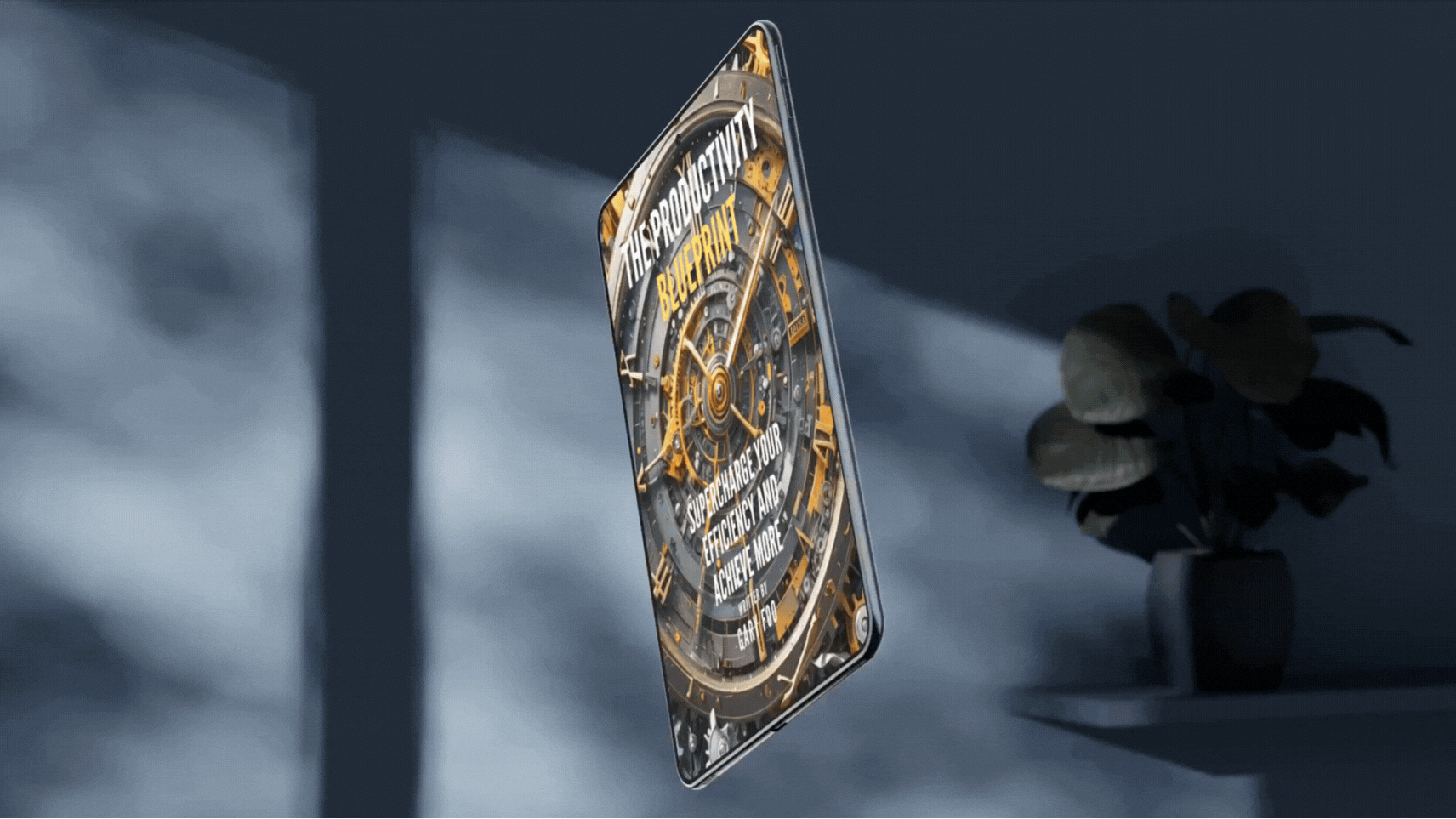The Productivity Blueprint: Mastering the Art of Getting Things Done
There is little to no time for stalling in the run and gun pace of today. The moment you step into the world of entrepreneurship, freelancing or corporate professionalism for that matter, productivity can set your boat afloat. Productivity, however; what does it really mean? How to output as much value without burning out? This is the
**“Productivity Blueprint”**—the guide to being at your peak performance.
1. Productivity Crisis 1: Quality over Quantity
The first step to becoming more productive is re-determining what productivity means. Its not about busy, busier in less time but doing the things that really matter and serving your business effectively.

Focus on Quality
Like for any work quality has a high ratio of less mistake,less rereading and more satisfaction. When you focus on completing a small number of high-impact tasks, instead of busy-work which gets you nowhere at all. That could just as well be more important than doing 10 trivial tasks…
Measure Output, Not Hours
It means being productive (actually getting things done) rather than counting hours. A 2-hour task that get’s done well is more productive than a bad job of an entire day. Measure success in terms of what results you produce rather than the time spent. →
2. The Blueprint to a Winning Life
How can we be productive, so productivity doesn´t come spontaneously? How to implement a productivity plan that actually works
Set Clear Goals
The Productivity Blueprint:
Clarity of what you are going to do is the first step in each productivity journey. What do you want to accomplish, today, this week or even this month? This means you will need to divide your final goals into more debatable tasks. It makes them less intimidating and more attainable.
Mitigating Utterly important tasks with the Eisenhower Matrix.
All tasks are not the same. Categorize Your Task with Eisenhower Matrix –
Urgent and Important:Tasks that fall under this category should be done immediately.
Hence **Important but not Urgent**: Must do and can be scheduled.
Not Urgent but Not Important: Delegate!
– Not Urgent and Not Important: Eliminate or Reduce
This will assist you to focus on the issues that are actually important.
Plan your day the night before —
Take a few minutes before you wrap up your day and lay the groundwork for the next. Write out the top 3 things you MUST get done! This leads you to your day having already cemented a head-start in checking off some boxes and preventing that morning scramble.
3. A Resource of Time Management Lifetime — Use Every Moment!
Time management is a backbone of productivity. When it comes to time management, here are a few tricks that can help you make the most of your time VS wasting precious seconds and minutes.
The Pomodoro Technique
Work 25 minutes and have a break for 5. Break for 15-30 mins after every four cycles., It helps to keep the focus and avoid burnout by splitting work into productive intervals.
Time Blocking
If you have a task to do, schedule 50 minutes in your day where all that matters is doing that—nothing else. A schedule sets aside exactly when you are going to give attention to other tasks, making sure that distraction is minimal and everything gets done.
The 2-Minute Rule
2-Minute Rule: Do it if under 2 minutes. This practice allows you to easily catch up on little things which could have been towed over and snowballed into a huge issue.
4. Preventing Productivity Pitfalls – Staying Focused
It is a human tendency to get easily trapped by some common productivity generation shortcuts, no matter how well you plan. Here’s how to avoid them:
Beware of Multitasking
It might sound like the answer to getting stuff done, but multitasking can be a recipe for mistakes and poor work. Concentrate on just one scheduled chore to ensure that you are paying attention.
Limit Distractions
Productivity killer of them all: DISTRACTIONS. Uncover your biggest distractions–be that social media, email, or phone notifications, and figure out a way to remove exposure as much as you can. Install apps and browser extensions for blocking of websites that can distract you during working hours.
Don’t Overcommit
If you take on too much, it can cause burnout and lower productivity. When your plate is too full, get comfortable saying no and knowing when to pass the baton in executing assignments. You are probably better off doing a few things great than everything mediocre.
5. Similar to Polishing a Gem: Continuous Improvement in Productivity
Productivity is not an achievement it’s a process. Here’s how to keep improving:
Reflect and Review
Take time at the end of each week to reflect on what you did and didn’t do. Consider what was successful and unsuccessful. Take this information and tweak your plan for the following week.
Learn and Adapt
Continue to be open-minded about productivity hacks and tools One tends to ride the wave of her/his life, but will learn soon enough: what works now is not working later. Remember, always look for more ways to make your workflow better.
Take Care of Yourself
Thus, after all as you are the one who wakes up early and makes yourself ready for your work is command from someone of executive else,TRAILING MOTORICK Exercising regularly, eating a proper diet and getting the right amount of sleep are all essential for optimal energy levels and keeping your brain in tip-top shape. You can only be productive if you’re feeling Good in your Body and Mind!

CONCLUSION:
CREATE YOUR BLUEPRINT_PRODUCTIVITY GUIDEPOSTS
Becoming masterful in productivity is about discovering what works best for you and sticking by it. You can create your own blueprint by learning the basics of productivity, effective planning strategies and time management skills so you are able to set yourself up for success rather than failure. This blueprint will not just help you reach your goals, but live an overall balanced and full life.
You have to keep on reminding yourself productivity is a journey and not the destination. Get going today and make the way to victory yours!
